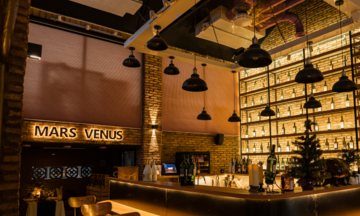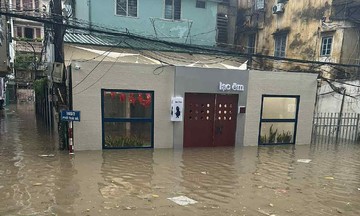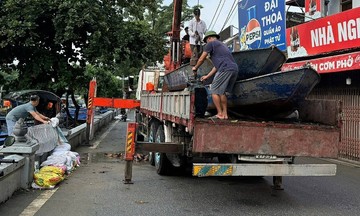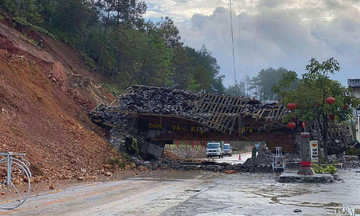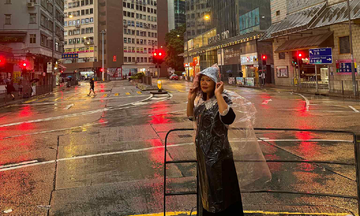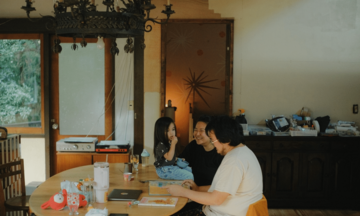Amadive Company's proposal to sink the cargo ship Sheng Li to create a tourist dive site in Con Dao has been rejected by the Ho Chi Minh City People's Committee. According to the September 22nd reply from the Department of Agriculture and Environment, this method of disposal is not stipulated in current law.
The agency cited regulations from the 2015 Vietnam Maritime Code and Decree 05/2017/ND-CP on the handling of wrecked property. Accordingly, there are only two options for handling the Sheng Li: destruction or sale, with no provision for sinking it to create a dive site.
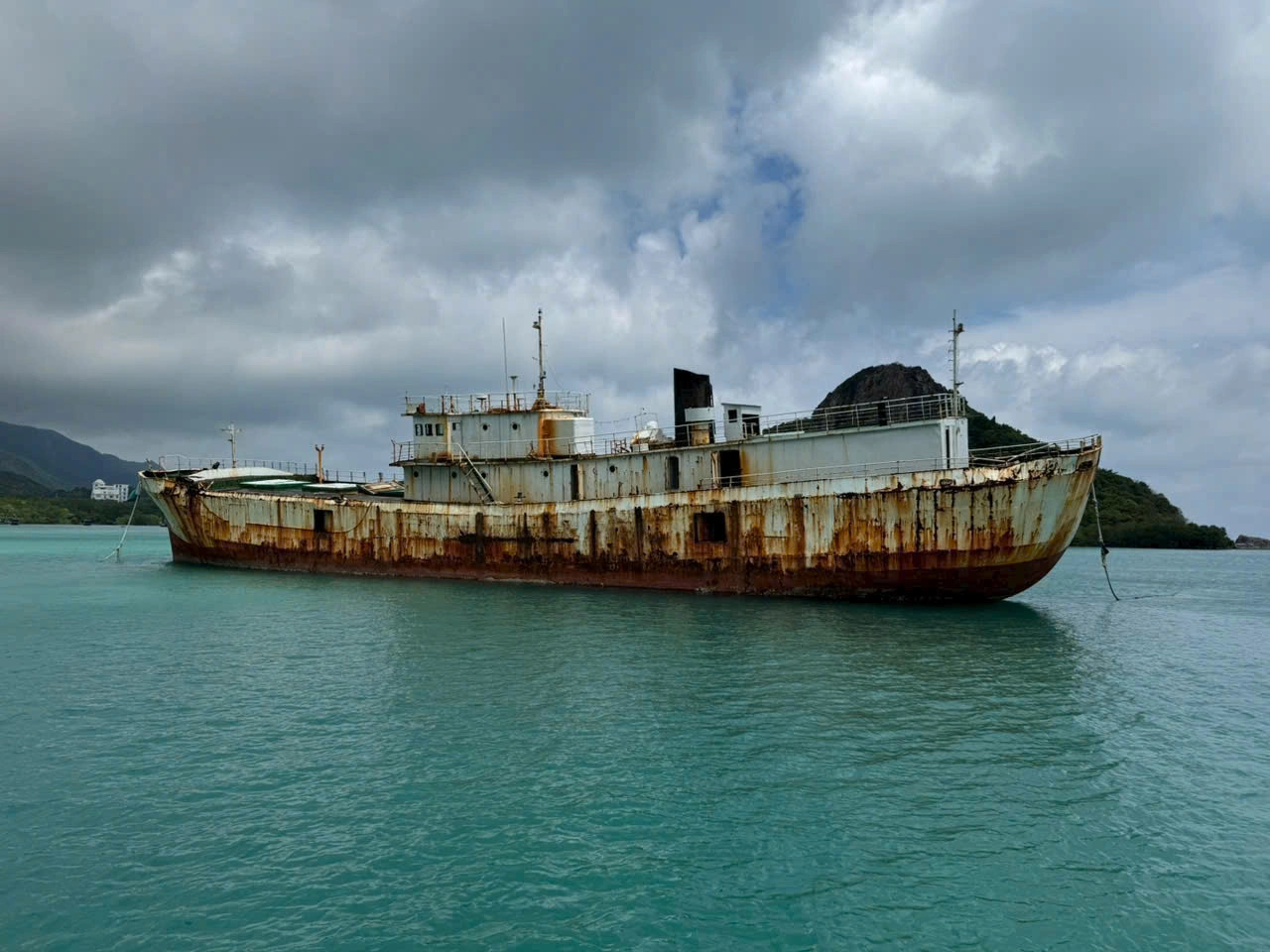 |
The cargo ship Sheng Li, abandoned for over 4 years in Con Son Bay, is now heavily rusted. Photo: Ngo Tuan Tu |
The cargo ship Sheng Li, abandoned for over 4 years in Con Son Bay, is now heavily rusted. Photo: Ngo Tuan Tu
In May, the People's Committee of Ba Ria - Vung Tau Province (now Ho Chi Minh City) issued a decision approving the starting price for the auction of the Sheng Li. According to this decision, the winning organization or individual is only allowed to use the ship for scrap recovery and cannot convert or use it for any other purpose. The Department of Finance is currently completing procedures for the auction to recover scrap metal. The ship will go through two rounds of bidding, with a starting price of 1.7 billion VND.
The Sheng Li, currently anchored in the storm shelter on Con Son Bay, is 52 m long, 8.5 m wide, and has a tonnage of about 12,000 tons. Built in 2002, it has been abandoned for the past 4 years. The hull is severely degraded, rusted, and damaged. The inside of the ship contains a lot of waste and thick grease. The ship has 6 interconnected cargo holds, one main engine, two auxiliary engines, a generator, and a propeller, all of which are corroded by saltwater, rusted, and no longer operational.
Mr. Ngo Tuan Tu, Director of Amadive Tourism Service Co., Ltd., said the company submitted the proposal to sink the Sheng Li at the end of June, when Ba Ria - Vung Tau province was preparing to merge with Ho Chi Minh City. The goal was to create a novel marine tourism product to attract diving enthusiasts. The proposal was sent to the Ho Chi Minh City Department of Tourism, the People's Committee of Ba Ria - Vung Tau Province (before the merger), and the province's Tourism Promotion Center.
"Sinking the ship would create an artificial reef, attract professional divers, and reduce pressure on the natural coral reefs, 80% of which died after last year's El Niño," Mr. Tu said, adding that current coral diving tours in Con Dao are less attractive due to the loss of biodiversity.
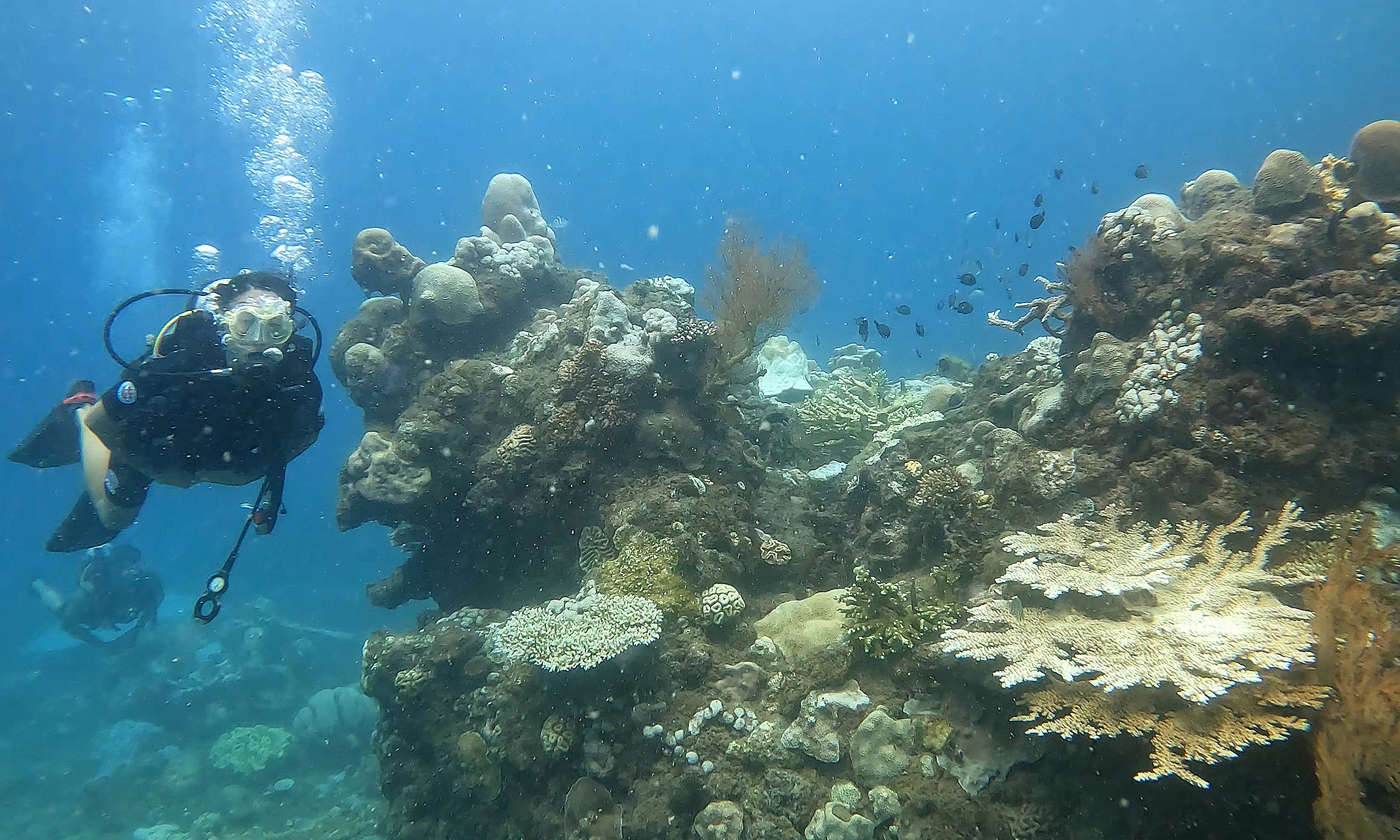 |
Bleached coral at Hon Tai, Con Dao, 6/2024. Photo: Nguyen Thai |
Bleached coral at Hon Tai, Con Dao, 6/2024. Photo: Nguyen Thai
There are mixed opinions about this proposal. According to experts, while the proposal might attract tourists, it also faces challenges regarding safety, legality, and environmental impact.
A representative of the Ho Chi Minh City Department of Tourism said they support the proactive development of new products but emphasized the need to comply with current procedures and regulations. Con Dao is a popular seaside destination for international tourists, with diving being one of the prominent activities. The shipwreck diving model could become an attractive product, bringing sustainable income to the locality.
Mr. Tran Tuong Huy, Deputy Director of the Institute of Social Tourism Research, said the idea of sinking the Sheng Li to develop shipwreck diving tourism is "attractive from a marketing and experience perspective". However, the feasibility of the proposal raises several issues.
According to Mr. Huy, the market share of professional divers in Vietnam in general, and Con Dao in particular, is still small, mainly consisting of international tourists with specialized needs. Shipwreck diving around the world is often attractive when associated with ships of historical, cultural, or legendary value. Since the Sheng Li is just an ordinary cargo ship, it is unlikely to be a major draw.
To proceed with the sinking, the project would require an environmental impact assessment, complete removal of grease and chemicals, and approval from multiple agencies. Technically, the ship needs to be cleaned and sunk in a safe area with a suitable depth, avoiding impacts on maritime activities and fishermen.
"Con Dao already has natural advantages such as coral reefs and sea turtles, sufficient to develop diving products without the need for artificial interventions," Mr. Huy said.
Bich Phuong



